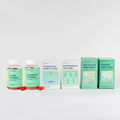The Test Strip Pack
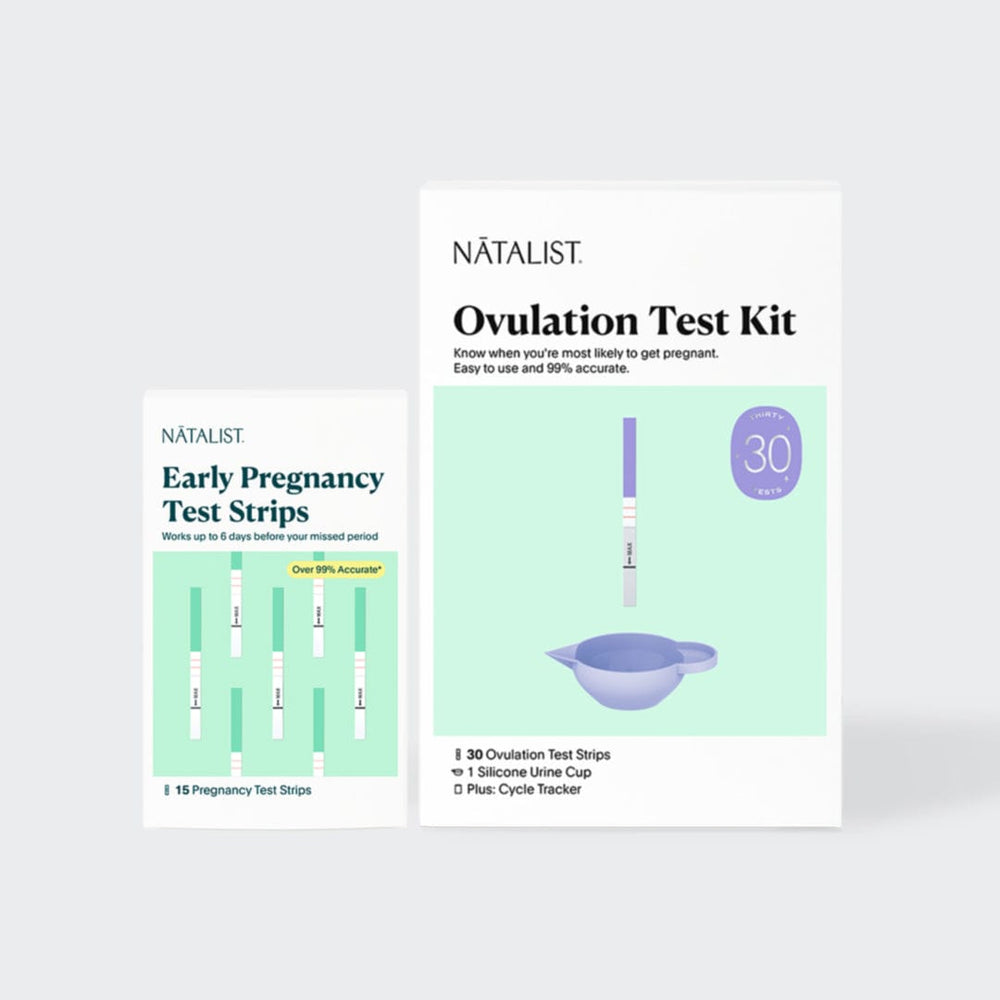

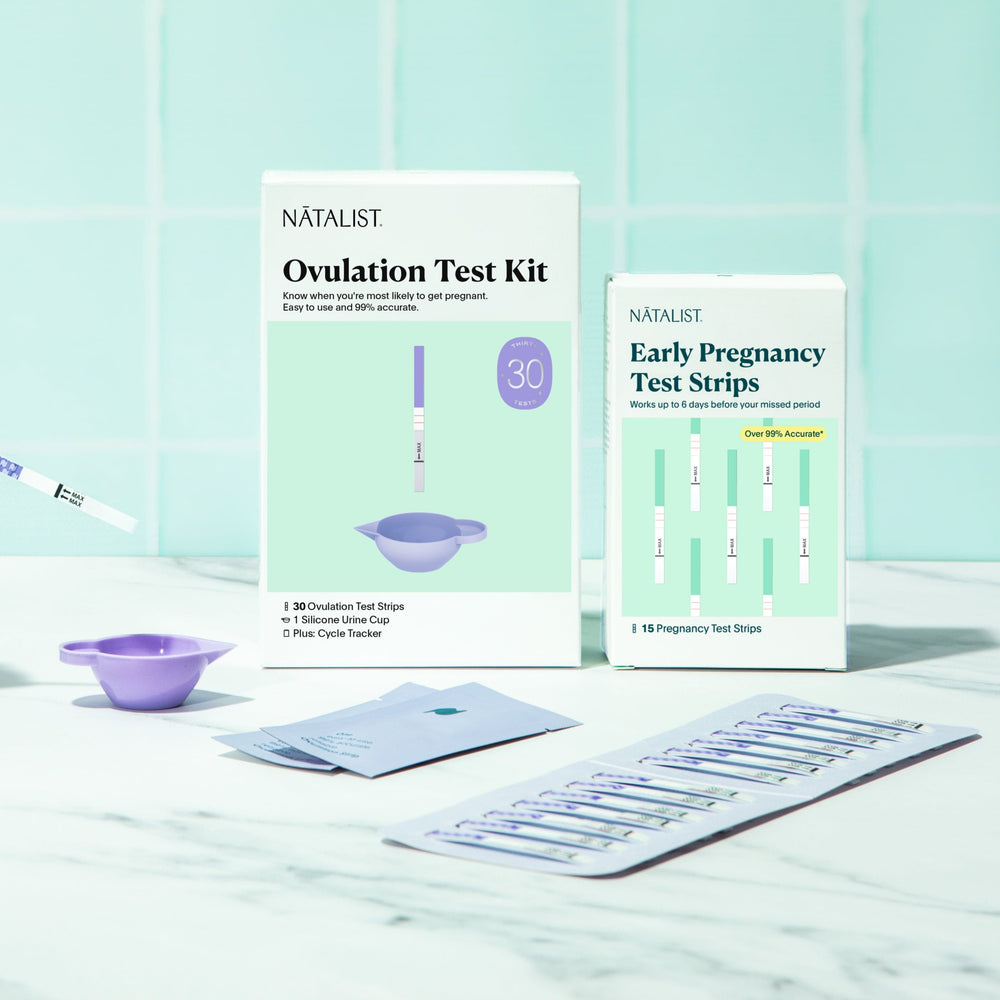
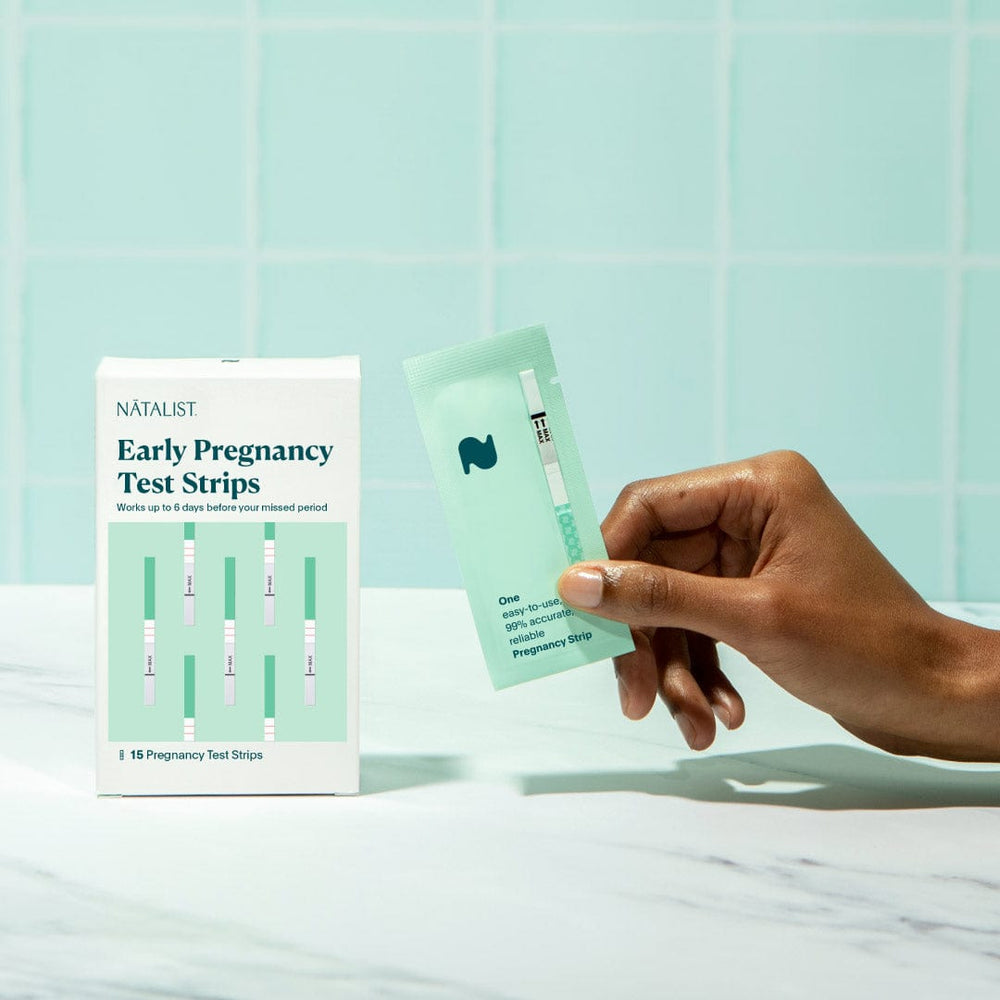
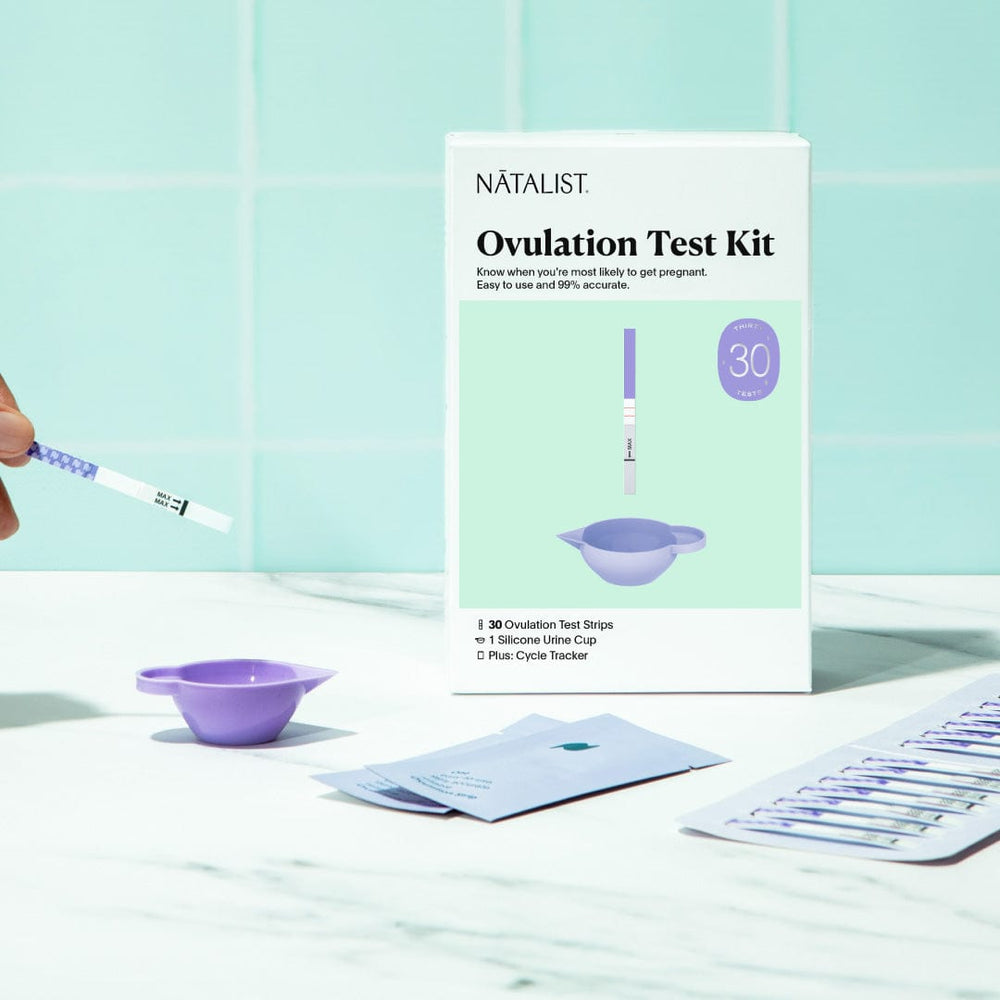
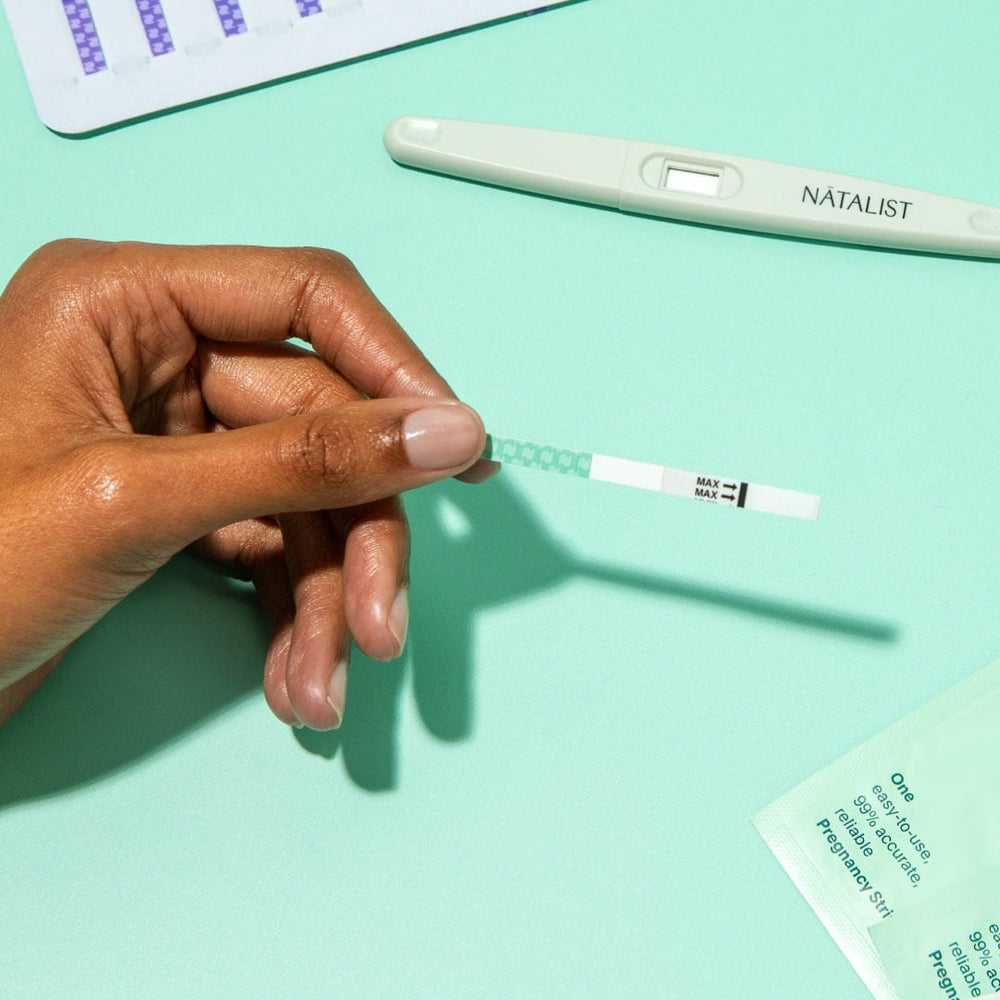
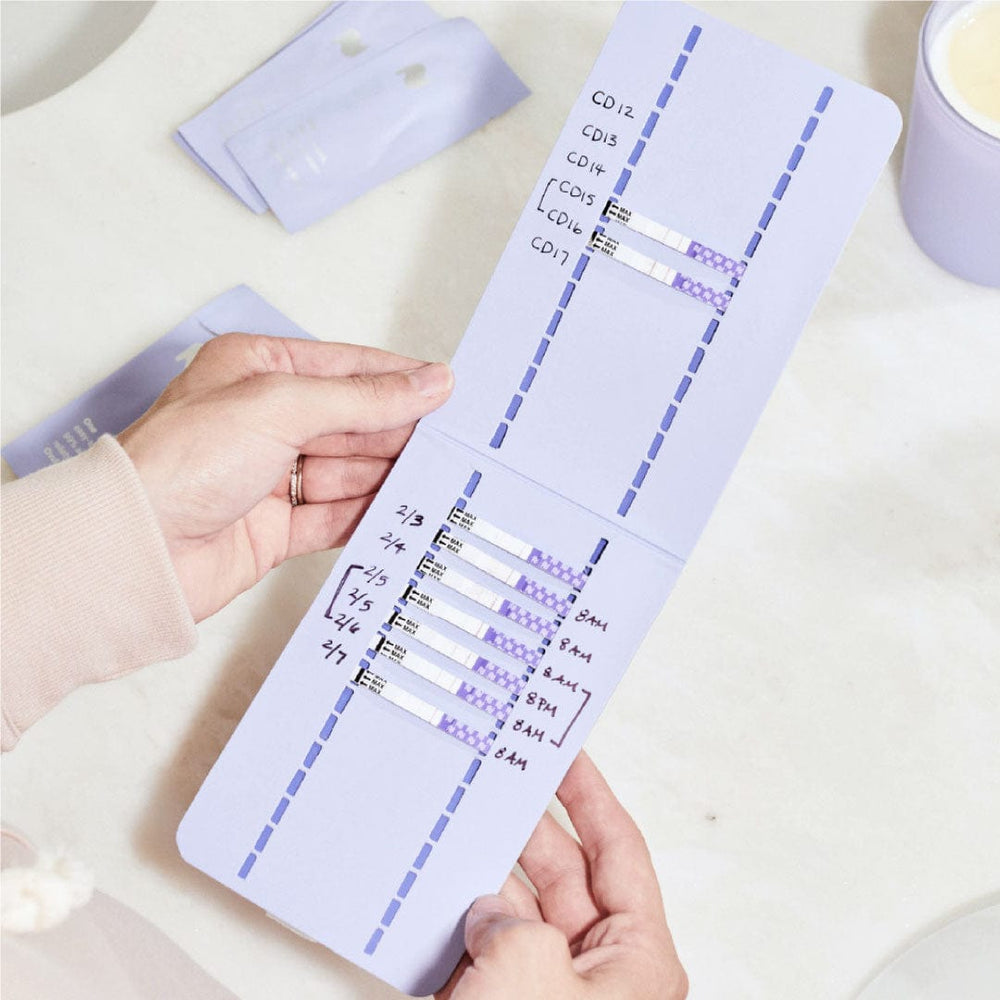
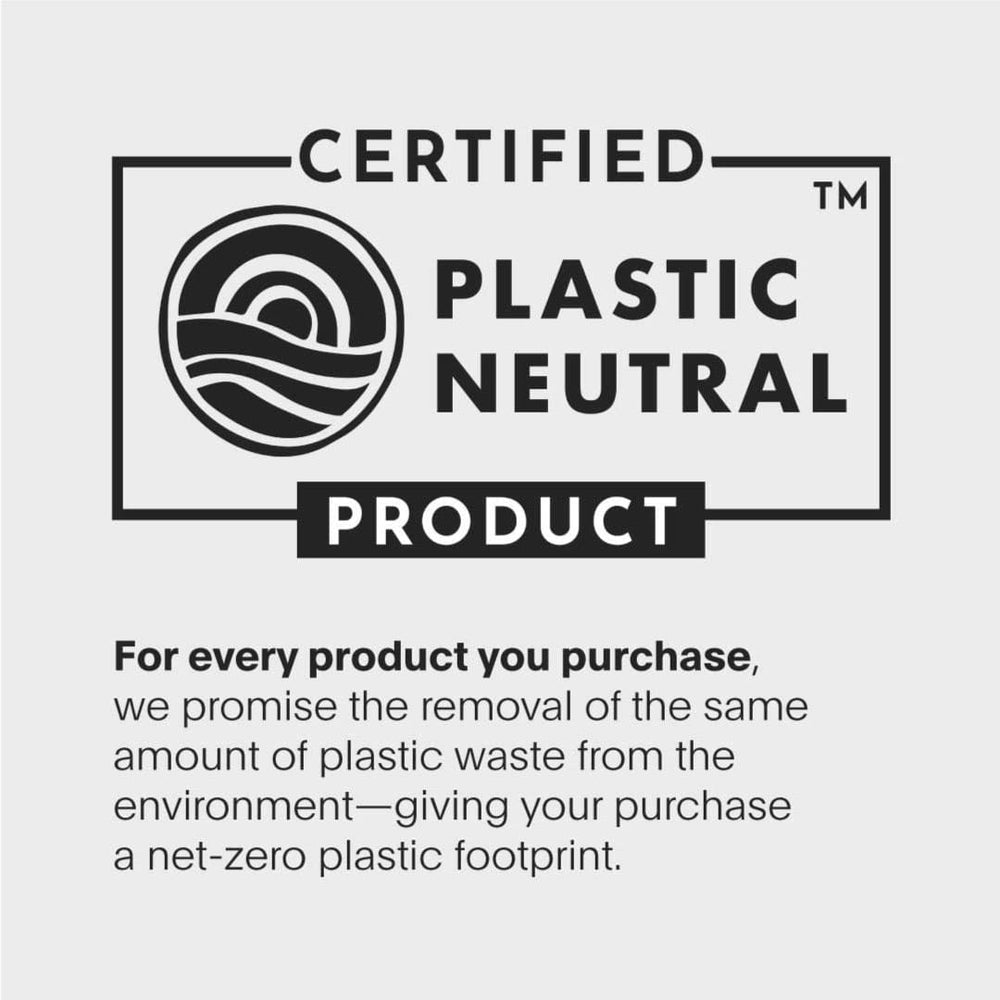
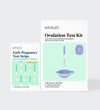

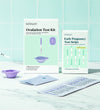
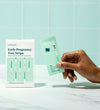
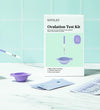
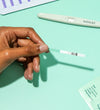
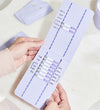

The Test Strip Pack
Easy, affordable, earth-friendlier, at-home ovulation and pregnancy test strips in one convenient bundle to get the answers you need, right when you need them.
Buying in bulk is good for your wallet & the planet! The Natalist Ovulation and Early Pregnancy test strips use 75% and 81%, respectively, less plastic than equivalent midstream tests. They are now available at a great cost savings to you in our Test Strip Pack, buy in bulk to save up to 10%!
Why We're Proud

HSA/FSA Eligible

FDA Cleared

Evidence Backed

100% Plastic Neutral
Get the clear answers you need as early as possible - Start with our Ovulation Test Kit
More for less
We’ve got you covered. This Ovulation Test Kit includes everything you need to find your fertile days. Our clear, jargon-free instructions will walk you through how to use the at-home ovulation kit. Plus, our one-of-a-kind Cycle Tracker helps keep your test results organized so you can easily identify when you typically experience your LH surge each cycle and help predict future cycles and fertile windows.

How it works
The Ovulation Test Kit includes ovulation test strips, which look to identify a hormone called luteinizing hormone (LH) that surges as your brain tells your ovaries when it’s time to release an egg.
The Ovulation Test Kit is clinically proven to identify your fertile window with over 99% accuracy, so you know when you're most likely to get pregnant.

Ditch the casing! An earth-friendlier option.
This ovulation predictor kit uses 75% less plastic than tests with casing. Plus, unlike digital ovulation tests, it produces zero electronic waste. Our ovulation prediction kits are also certified plastic neutral which means we remove as much plastic waste from nature as our products produce.

Get peace of mind with our Early Pregnancy Test Strips
Natalist Early Pregnancy Test Strips have the precision you need—they are clinically proven to be over 99% accurate.*
- Our Early Pregnancy Test Strips detect human Chorionic Gonadotropin (hCG), one of the first signs of pregnancy.
- The growing embryo makes hCG, which can be detected in the woman's urine after the embryo implants into the uterine wall.

Our Early Pregnancy Test Strips use 81% less plastic than midstream pregnancy tests
We actively work to reduce our footprint on Mother Earth by identifying more sustainable manufacturing processes and materials and reducing packaging waste. That commitment was the motivation behind developing our new Early Pregnancy Test Strips. Because these at-home pregnancy test strips don’t have plastic casing, they are better for the environment. Our Early Pregnancy Test Strips use 81% less plastic than midstream tests and do not produce electronic waste from batteries or other digital components.


We do our homework. See the research behind our hCG Pregnancy Test Strips and the Ovulation Test Kit.
Natalist Early Pregnancy Test Strips are over 99% accurate.*
Our urine, early pregnancy test strips are over 99% accurate at predicting pregnancy at 3 days before the day of the missed period.
Early on, a pregnant woman may not be producing enough hCG for the test to detect. This is why the test is less accurate the earlier you take it. hCG can only be detected in urine after the embryo implants itself in the uterine wall, which occurs between the sixth and tenth day post-fertilization. At five days before an expected period, an embryo may have just implanted and hCG hormone production may not have yet increased enough to meet the test’s detection threshold. Early on in pregnancy hCG levels rise rapidly, doubling every two days. The closer you are to your missed period, the more reliable your early pregnancy test results will be.
At Natalist, we understand that urge to test as early as possible—we’ve been there ourselves. You get fifteen early pregnancy test strips in each box so that you can test before, and on the day of your missed period, or whenever you choose.
Here’s some of the research that went into making our Natalist Early Pregnancy Test Strips.
Braunstein, Glenn D. 2014. “The Long Gestation of the Modern Home Pregnancy Test.” Clinical Chemistry 60 (1): 18–21.
Eichner, Samantha F., and Erin M. Timpe. 02/2004. “Urinary-Based Ovulation and Pregnancy: Point-of-Care Testing.” The Annals of Pharmacotherapy 38 (2): 325–31.
Gnoth, C., and S. Johnson. 2014. “Strips of Hope: Accuracy of Home Pregnancy Tests and New Developments.” Geburtshilfe Und Frauenheilkunde 74 (7): 661–69.
Johnson, Sarah R., Sonya Godbert, Paul Perry, Pauline Parsons, Louise Roberts, Philip Buchanan, John Larsen, Todd A. Alonzo, and Michael Zinaman. 2013. “Accuracy of a Home-Based Device for Giving an Early Estimate of Pregnancy Duration Compared with Reference Methods.” Fertility and Sterility 100 (6): 1635–41.e1.
Joshi, U. M., R. Roy, A. R. Sheth, and H. P. Shah. 1981. “A Simple and Sensitive Color Test for the Detection of Human Chorionic Gonadotropin.” Obstetrics and Gynecology 57 (2): 252–54.
Robinson, Joan H. 2016. “Bringing the Pregnancy Test Home from the Hospital.” Social Studies of Science 46 (5): 649–74.
Wilcox, A. J., D. D. Baird, D. Dunson, R. McChesney, and C. R. Weinberg. 2001. “Natural Limits of Pregnancy Testing in Relation to the Expected Menstrual Period.” JAMA: The Journal of the American Medical Association 286 (14): 1759–61.
Ovulation test strips help identify your fertile window by detecting your LH surge.
Ovulation is induced by a surge of luteinizing hormone (LH), a hormone produced by the anterior pituitary in the brain. This LH surge, which occurs approximately 24-48 hours before ovulation, can be detected by our easy at-home ovulation LH test strips. During your LH surge, an abundance of LH is excreted in urine, which the ovulation test kit will detect and display as a positive ovulation test result.
Ovulation tests are clinically proven to be accurate in predicting ovulation.
There are lots of options available to women to track ovulation: basal body temperature (BBT) charting, cervical mucus tracking, salivary ferning, and home ovulation tests (also known as OPKs, or ovulation predictor kits). Multiple studies have evaluated the clinical accuracy of the above methods and home ovulation tests that detect urinary LH, like the ovulation test strips included in the Natalist Ovulation Test Kit, have consistently been shown to be accurate in predicting ovulation.
Timing is critical when you’re trying to get pregnant. Our ovulation test kit finds your ideal time to conceive.
Timing is everything when trying to conceive. Finding your fertile window, aka the days when you are most likely to conceive, is essential. It can be difficult to decode your biology to find the ideal time to try to get pregnant each month. If your cycle length is irregular or varying, it can feel impossible as your fertile window makes itself a moving target. If that’s you, our ovulation kit can be especially helpful—the clear readout of the Natalist Ovulation Test Kit will tell you if you are in your LH surge or not, enabling you to confidently identify when you are ovulating.
Our ovulation test strips are FDA registered.
The sale of home ovulation tests is regulated by the Food and Drug Administration (FDA) in the United States. Ovulation tests are classified as Class I medical devices, and the FDA sets regulatory standards for their manufacture and distribution and requires that all Class I device manufacturers are registered with the FDA (FDA Registered).
All Natalist products and packaging are certified plastic neutral.
All Natalist products and packaging are 100% plastic neutral. For every pound of plastic we sell, we facilitate the removal of a pound of plastic pollution—giving your purchase a net-zero plastic footprint.
We do our homework. Here’s some of the research that went into making the Natalist Ovulation Test Kit.
Direito, Ana, Sébastien Bailly, Aude Mariani, and René Ecochard. 2013. “Relationships between the Luteinizing Hormone Surge and Other Characteristics of the Menstrual Cycle in Normally Ovulating Women.” Fertility and Sterility 99 (1): 279–85.
Ecochard, Rene, Olivia Duterque, Rene Leiva, Thomas Bouchard, and Pilar Vigil. 2015. “Self-Identification of the Clinical Fertile Window and the Ovulation Period.” Fertility and Sterility 103 (5): 1319–25.e3.
Eichner, Samantha F., and Erin M. Timpe. 02/2004. “Urinary-Based Ovulation and Pregnancy: Point-of-Care Testing.” The Annals of Pharmacotherapy 38 (2): 325–31.
Fehring, Richard J. 1990. “Methods Used to Self‐predict Ovulation A Comparative Study.” Journal of Obstetric, Gynecologic & Neonatal Nursing 19 (3): 233–37.
Guermandi, Ellade, Walter Vegetti, Massimiliano M. Bianchi, Anna Uglietti, Guido Ragni, and Piergiorgio Crosignani. 2001. “Reliability of Ovulation Tests in Infertile Women.” Obstetrics & Gynecology 97 (1): 92–96.
Jones, Georgina, Jill Carlton, Sarah Weddell, Sarah Johnson, and William L. Ledger. 2015. “Women’s Experiences of Ovulation Testing: A Qualitative Analysis.” Reproductive Health 12 (December): 116–116.
Leiva, Rene Antonio, Thomas Paul Bouchard, Saman Hasan Abdullah, and René Ecochard. 2017. “Urinary Luteinizing Hormone Tests: Which Concentration Threshold Best Predicts Ovulation?” Frontiers in Public Health 5 (November): 320.
Lloyd, R., and C. B. Coulam. 1989. “The Accuracy of Urinary Luteinizing Hormone Testing in Predicting Ovulation.” American Journal of Obstetrics and Gynecology 160 (6): 1370–72; discussion 1373–75.
Manders, Marlies, Luke McLindon, Brittany Schulze, Michael M. Beckmann, Jan A. M. Kremer, and Cindy Farquhar. 2015. “Timed Intercourse for Couples Trying to Conceive.” Cochrane Database of Systematic Reviews.
Su, Hsiu‐wei, Yu‐chiao Yi, Ting‐yen Wei, Ting‐chang Chang, and Chao‐min Cheng. 2017. “Detection of Ovulation, a Review of Currently Available Methods.” Bioengineering & Translational Medicine 2 (3): 238–238.
Tiplady, S., G. Jones, M. Campbell, S. Johnson, and W. Ledger. 2013. “Home Ovulation Tests and Stress in Women Trying to Conceive: A Randomized Controlled Trial.” Human Reproduction 28 (1): 138–51.
Commonly asked questions
Natalist Early Pregnancy Tests
How do I use these pregnancy tests?
- Unwrap one Natalist Early Pregnancy Test Strip and hold it by the green handle.
- Pee into a cup, and place the cup on a flat surface.
- Dip the test strip vertically into the cup of urine for at least 15 seconds. Be careful not to let urine get above the max line when dipping the test!
- Place the test on a flat surface and wait five minutes before reading your result.
When should I take a pregnancy test?
Short answer: For most accurate results, we recommend using Natalist Early Pregnancy Test Strips three days before the start of your next period.
How do I know the pregnancy test is working?
The control line will turn pink to let you know everything is functioning properly with the actual test!
Are the wrappers recyclable?
Unfortunately, the wrappers are not recyclable.
Is the box recyclable?
Our Pregnancy Test Strip boxes are made from card box material which is 100% recyclable.
Are the tests cruelty-free?
Yes. Our tests are not tested on animals.
Can drinking a lot of water affect your test results?
While it is super important to stay hydrated, keep in mind that drinking a large quantity of liquid in the few hours before testing can dilute your urine and cause a false negative result. If you’re testing before your expected period, we recommend that you test first thing in the morning (when your urine has a higher concentration of hCG) if you tend to drink a lot of water throughout the day.
Is this product FSA/HSA eligible?
Yes! This product is eligible for FSA and HSA reimbursement. You can either use your HSA debit card at checkout, or use the itemized receipt (which will be in your inbox after you make a purchase). Read more about submitting for FSA and HSA reimbursement here.
All Natalist products and packaging are certified plastic neutral.
All Natalist products and packaging are 100% plastic neutral. For every pound of plastic we sell, we facilitate the removal of a pound of plastic pollution—giving your purchase a net-zero plastic footprint.
Natalist Ovulation Test Kit
What comes with the Ovulation Test Kit?
Each box contains 30 individually-wrapped ovulation test strips, one reusable silicone urine cup, and we’ve also included a bonus: our patent pending Cycle Tracker to easily identify your LH surge.
How do I use these ovulation test strips?
Ovulation strips are similar to midstream test sticks, only without the plastic casing. To use your ovulation test strips, pee into the cup, and place the cup on a flat surface. Unwrap one test, and hold by the purple handle. Dip the test into the cup of urine for 20 seconds. Do not pee above the max line! You can learn more about using our ovulation test strips in our jargon-free instructions.
Why are my results streaky?
Test results may appear streaky if the test was not dipped for long enough. Make sure to dip the test for the full 20 seconds.
What does a positive result look like?
A positive result is when the test line is as dark, or darker, than the control line. To learn more about interpreting your ovulation test, read here.
What days should I take the ovulation test?
It varies depending on the length of your cycle—but the short answer is seven to 11 days after the first day of your period. Learn more about your hormone levels as well as when and how to use an ovulation test here.
What is the sensitivity level (mIU/mL) of your tests?
Each ovulation strip can detect LH in urine at 20 mlU/mL. Read more in the blog post, Does Ovulation Test Sensitivity Matter?
How do I use the Cycle Tracker?
It is helpful (and highly recommended) to keep and reference your test strips in sequential order using the included Cycle Tracker. This will help you track of when you typically experience your LH surge each cycle and will also help predict future cycles and fertile windows.
Is the cup reusable?
Yes! The cup is made from silicone, which is durable and sustainable. Please wash and reuse!
How do I dispose of the ovulation prediction kit?
Please recycle the box and paper materials. The tests, wrappers, and desiccants cannot be recycled.
Is this product FSA/HSA eligible?
Yes! This product is eligible for FSA and HSA reimbursement. You can either use your HSA debit card at checkout, or use the itemized receipt (which will be in your inbox after you make a purchase). Read more about submitting for FSA and HSA reimbursement here.
We have applied for patent protection with the United States Patent and Trademark Office for our Ovulation Test Kit Cycle Tracker. TEST STRIP PACKAGING, USA, Application Number 29/774,904






